Menu
You can manage your membership and billing method by clicking here
Terms of Service
Privacy Policy
Copyright © 2025 Office of Immigration Australia, a private company registered in Australia. All Rights Reserved.

Checking membership status...
 EXCLUSIVE MEMBERS ONLY ACCESS
EXCLUSIVE MEMBERS ONLY ACCESSTo access this month’s edition & Member’s only resources, enter your registered email address.

This bulletin is for members only, and provides our members with month to month updates on Australian immigration policy changes and consequential opportunities. Opportunities are found via federal and state government policy shifts for the demand and supply for certain occupations.
This bulletin will keep you up to date so that you do not have to employ expensive immigration lawyers to provide you with monthly research.
SEPTEMBER 2021 has produced a positive trend in immigration as migrants on the Priority Migration Skilled Occupation List (PMSOL) begin to arrive in larger numbers. The federal government has announced that the borders will be open when 80 per cent of the Australian population is fully vaccinated, anticipated for December 2021. Also, this month the Federal Government has announced the establishment of a new visa – The Australian Agriculture visa! All this and much more in the September issue of The Australian Immigration Bulletin!
Let’s take a look at what has happened so far and what is planned for the remainder of SEPTEMBER 2021 in Australian Immigration, so that you can start planning!
As legislation and travel requirements are constantly changing, we strongly recommend obtaining advice on your individual situation from a Registered Migration Agent.
Please click here to book a consultation with one of our Registered Australian Migration Agents, located in Australia.
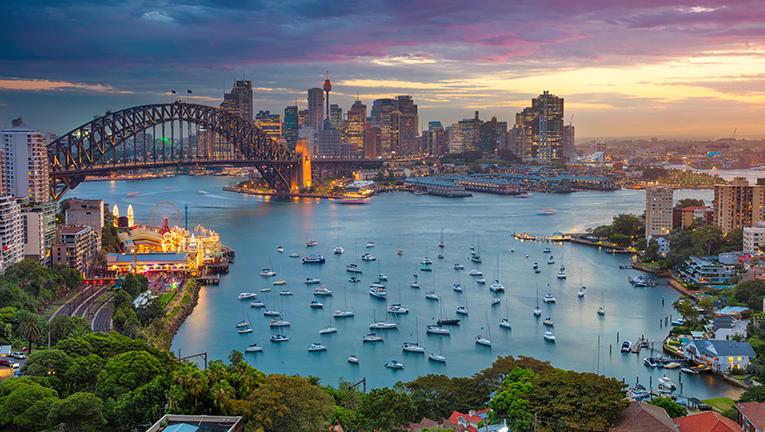
As we’ve entered the ninth month of the year, join us for a look at the latest news and developments in the world of Australian Immigration!
We asked those who have established themselves with skilled jobs to share their experience and tips for a career in Australia.
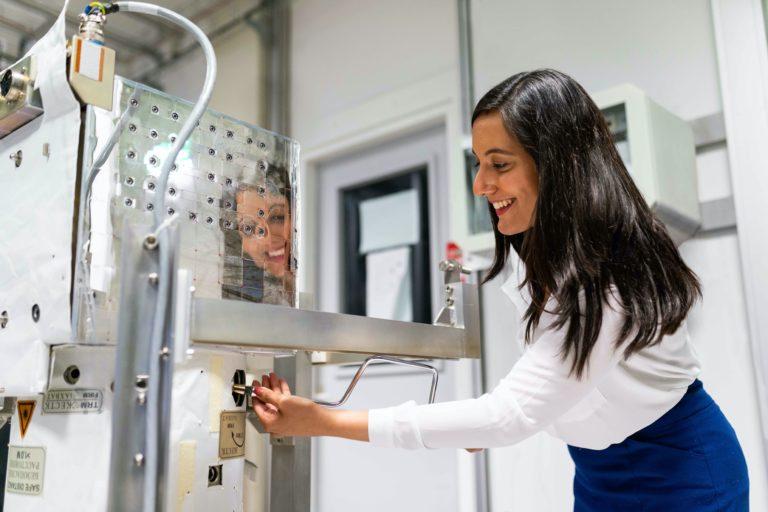
We spoke with Eduardo, a skilled migrant who is an environmental engineer currently working for a private environmental consultancy.
I had a really good background in environmental consultancy from Brazil.
Definitely the biggest challenge was proving that an engineer from Brazil can be as good as an engineer from anywhere else in the world.
I think confidence is really the key point. You have your resume to present your experiences and having a good background of work experience is helpful. But it really comes down to how confident you are explaining this in the interview.
I started looking pretty much like everyone else:
Because I was focused on finding something in my field I also had other approaches:
I found a company on my list and checked the LinkedIn page. There was an ad for environmental engineer.
So I put in my best application for that that position. They called me and scheduled an interview for the week after. It was the worst week of my life waiting for that interview to come! But that’s how I found my job.
One thing I’ve learned about myself is how resilient I am.
I am open to new experiences, and then I can go through pretty much anything and start fresh and progress all over again.
I know how to make my way to the top again.
Don’t give up, keep looking, something will pop up!
And especially be confident. Always be confident in the professional we were in home country.
And like I said before, it’s always good to use your resilience.

This month the Federal Government has announced the establishment of the Australian Agriculture visa to build on the highly successful existing Pacific schemes.
This visa responds to workforce shortages in the agriculture and primary industry sectors, and recent changes to the Working Holiday Maker program developed as part of the UK-Australia Free Trade Agreement.
The Australian Agriculture visa will be available to workers across the agriculture (including meat processing), fisheries and forestry sectors and provide a basis for the ongoing growth of Australia’s primary industries as they strive to reach $100 billion in value by 2030.
The program will be operated by the Department of Foreign Affairs and Trade, building on the strong outcomes from Pacific labour mobility programs.
The Government will immediately commence industry consultations to understand needs across the agricultural sector. The departments of Foreign Affairs and Trade, Home Affairs and Agriculture, Water and the Environment will design the visa to ensure a high degree of integrity and safeguards for workers. The Australian Federal Government will work closely with partner governments also, including our Pacific family, to ensure their interests are protected.
Regulations to enable the creation of the Australian Agriculture visa will be in place by the end of September 2021. Operation of the visa will depend on negotiations with partner countries.
The Government’s primary and growing method for meeting agricultural workforce shortages are the existing Seasonal Worker Programme (SWP) and Pacific Labour Scheme (PLS), and the new visa program will build on these. These workers are highly valued by Australian industry and are critical to Australia’s horticultural and meat processing sectors, including during the COVID-19 pandemic.
The Australian Agriculture visa will be open to applicants from a range of countries negotiated through bilateral agreements.
Full conditions will be developed and implemented over the next 3 years as the visa is operationalised. During this implementation period we will work to achieve a demand driven approach and consider permanent residency pathways and regional settlement.
Quarantine places remain the biggest constraint to bringing in overseas workers where there are no Australians to fill workforce shortages. The Government is working closely with States and Territories to ensure we can meet future workforce needs across all sectors.
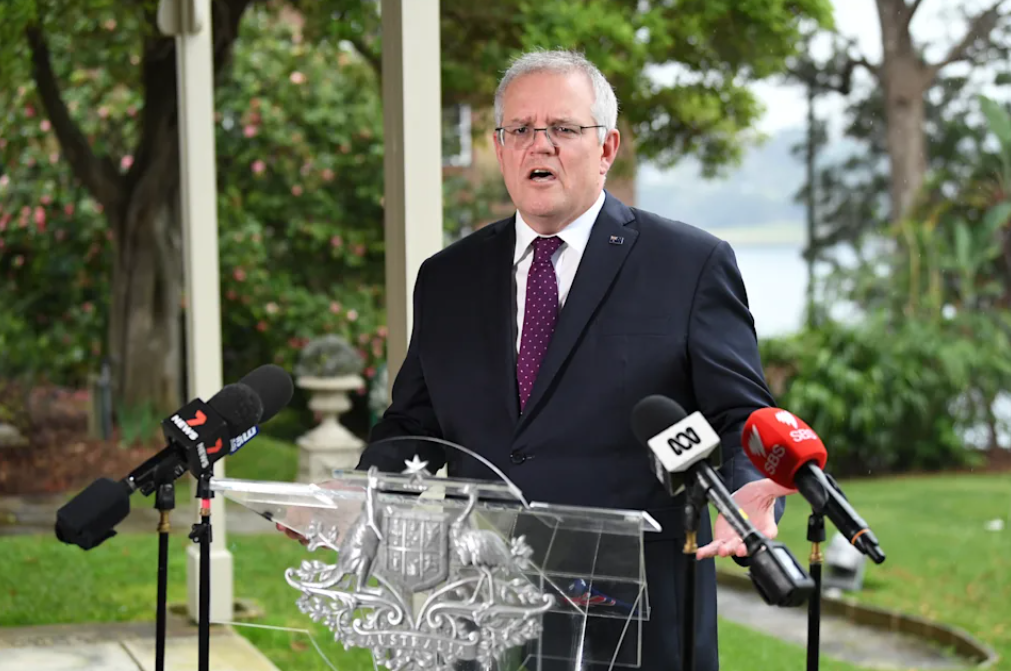
The UK is currently clocking more than 20,000 daily COVID-19 cases as the Delta variant throws several countries who were on a path to recovery back into chaos.
According to the Australian Government’s National Cabinet’s four-phase plan, Australia’s international borders will be open when 80 per cent of the Australian population is fully vaccinated, anticipated to be in December 2021.
The nation is about halfway to reaching that target; only 43.2 per cent of Australians have had their second dose, according to NSW Health data.
The Federal Government is developing a digital border pass for international travel called the Digital Passenger Declaration (DPD) which will apply to all travellers entering and leaving the country.

The Global Talent Employer Sponsored program is an option to consider for Australian employers struggling to attract and retain highly skilled overseas workers under Australia’s current visa programs. It further provides an overview of recent updates to the Priority Migration Skilled Occupation List and COVID-19 vaccination concessions for travel exemption holders.
The Australian Government has increased its attention in attracting skilled workers and businesses under its Global Talent programs.
The Global Talent – Employer Sponsored (GTES) is a new Labour Agreement pathway that is designed to help businesses fill highly-skilled, innovative and cutting-edge positions that cannot be filled from the local labour market and through the existing standard visa programs. Under this Labour Agreement the Department of Home Affairs has the discretion to allow flexibility to the TSS visa and permit a temporary stay period of up to four years with a clear pathway to permanent residency after three years.
Both start-up and established business are able to access the GTES program.
For established businesses to be able to access this program, they must:
On the 27 July 2021 three occupations of Hospital Pharmacist (251511), Industrial Pharmacist (251512) and Retail Pharmacist (251513) were added to the Priority Migration Skilled Occupation List.
This means, that any applications under the PMSOL for Temporary Skills Shortage visa (482 visa), Skilled Employer Sponsored Regional (Provisional) visa (subclass 494), Employer Nomination Scheme (ENS) visa (subclass 186) and Regional Sponsored Migration Scheme (RSMS) visa (subclass 187) are considered “critical” and are priority processed.
Temporary visa holders under 50 years of age who are currently in Australia and have an approved inwards travel exemption for return travel to Australia are eligible to access COVID-19 vaccinations if they obtained a travel exemption on or after 8 June 2021.
For temporary visa holders who are granted travel exemptions prior to 8 June 2021 and have not left Australia are able to resubmit their travel exemption if they wish to get vaccinated before they depart Australia.
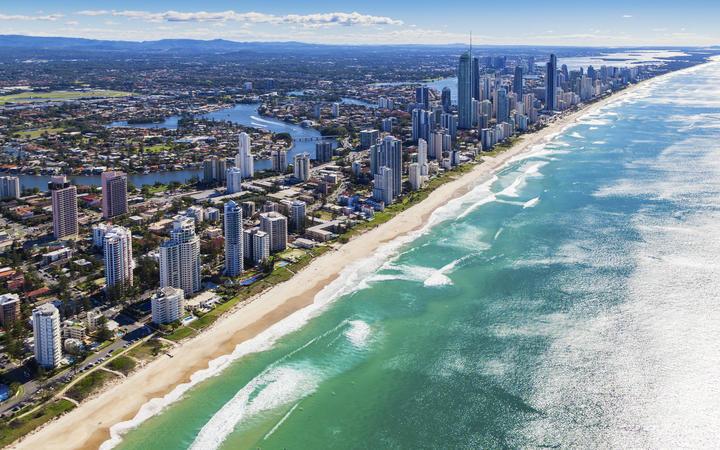
`Business & Skilled Migration Queensland’ (BSMQ) is undertaking consultation within the Queensland Government to determine the requirements for the migration program for 2021-22.
It is anticipated that the program is still due to open before the end of the month (September) 2021.
The BSMQ is looking forward to receiving applications in the near future.
‘Business and Skilled Migration Queensland’ will soon be changing their name to ‘Migration Queensland’.
If you have been nominated by BSMQ for a 188 visa prior to 1 July 2021, you will be subject to current 188 criteria. However, you are able to submit your visa application to Home Affairs after this date, as long as it meets the normal 60-day requirement.
When the Migration Queensland program 2021-22 opens at a later date, you will be subject to the new subclass 188 criteria.
The Australian Migration Bulletin will continue to update you regarding the Queensland State Nomination migration program over the next monthly bulletins.
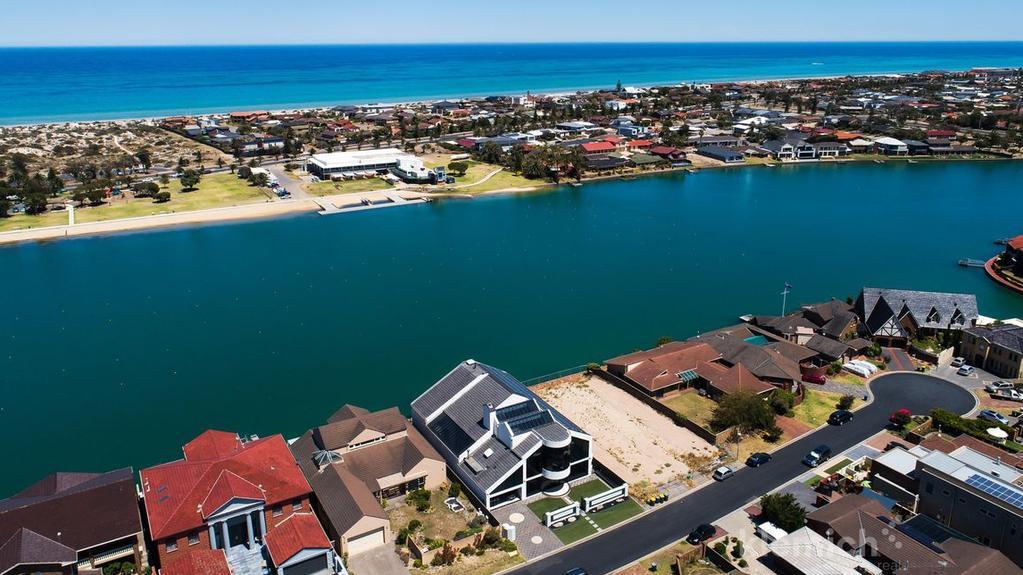
South Australia’s Skilled and Business Migration program provides migrants a pathway to living, working or establishing their business in South Australia through the support of State Nomination.
South Australia offers state nomination across two visa options for skilled migrants that provide pathways to permanent residency.
1. Skilled Nominated visa – Subclass 190
This is a state nominated permanent visa for skilled migrants that allows you to live and work in South Australia.
South Australia offers a state nomination pathway for this visa if you meet the state nomination requirements.
This is a permanent visa that allows you to stay in South Australia indefinitely.
State nomination from South Australia provides you with 5 additional points to help you qualify for a subclass 190 visa under the Department of Home Affairs points test.
To apply for this visa you must be under the age of 45 at the time of nomination, have a valid skills assessment and an occupation listed on South Australia’s Skilled Occupation List.
See Nomination Requirements for a full list of the nomination criteria.
2. Skilled Work Regional (Provisional) Visa – Subclass 491
This is a state nominated provisional visa for skilled migrants that allows you to live and work in South Australia for up to five years and can provide a pathway to permanent residency.
You must be nominated by the Government of South Australia to apply for this visa.
See Nomination Requirements for a full list of the nomination criteria for this Visa.
State nomination from South Australia provides you with 15 additional points to help you qualify for a subclass 491 visa under the Department of Home Affairs points test.
South Australia offers a state nomination pathway for the subclass 491 visa if you meet all state nomination requirements .
If you live and work in South Australia for three years on the subclass 491 visa and meet the minimum taxable income level for at least three years (see the Department of Home Affairs website), you may be eligible to apply for permanent residency through the subclass 191 Permanent Residence (Skilled Regional) visa.
To apply for this visa you must be under the age of 45 at the time of nomination, have a valid skills assessment and an occupation listed on South Australia’s Skilled Occupation List.
See Nomination Requirements for a full list of all nomination criteria.
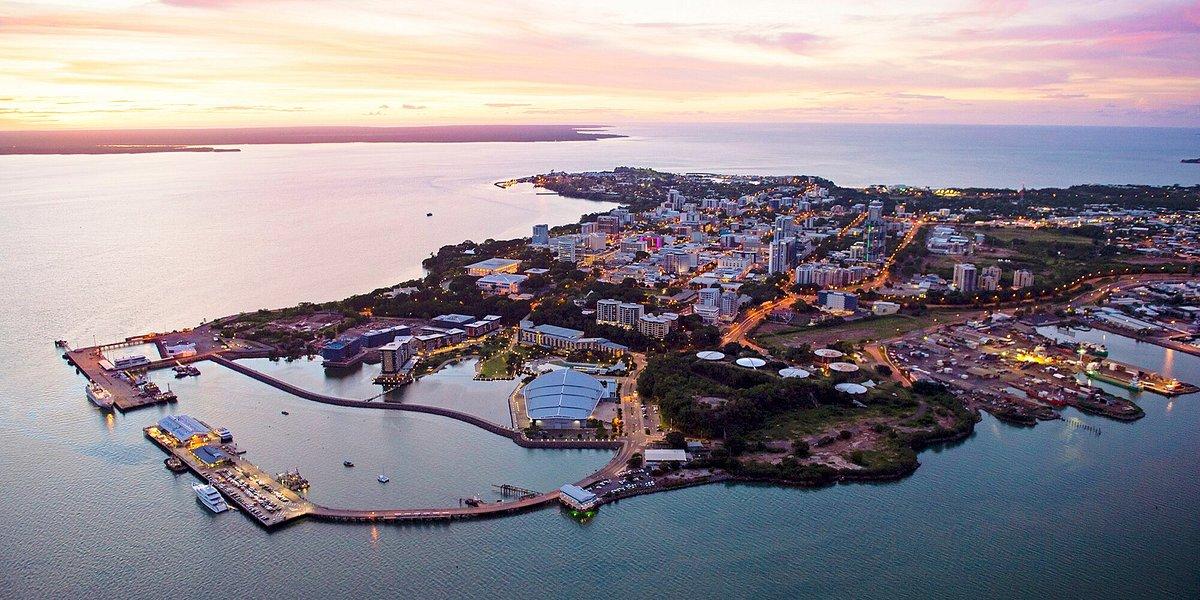
The Australian Capital Territory (ACT) Government has the flexibility to address skills shortages and labour market needs in the Territory through the state/territory nominated stream of the Australian Migration Program. The Australian Government allocates the ACT a fixed number of nomination places.
ACT nomination does not guarantee a migration outcome. You must still meet the Department of Home Affairs visa criteria.
Application Count @ 1 September 2021
Remaining Allocation 2021-2022
The next invitation round will be held before 23 September 2021.
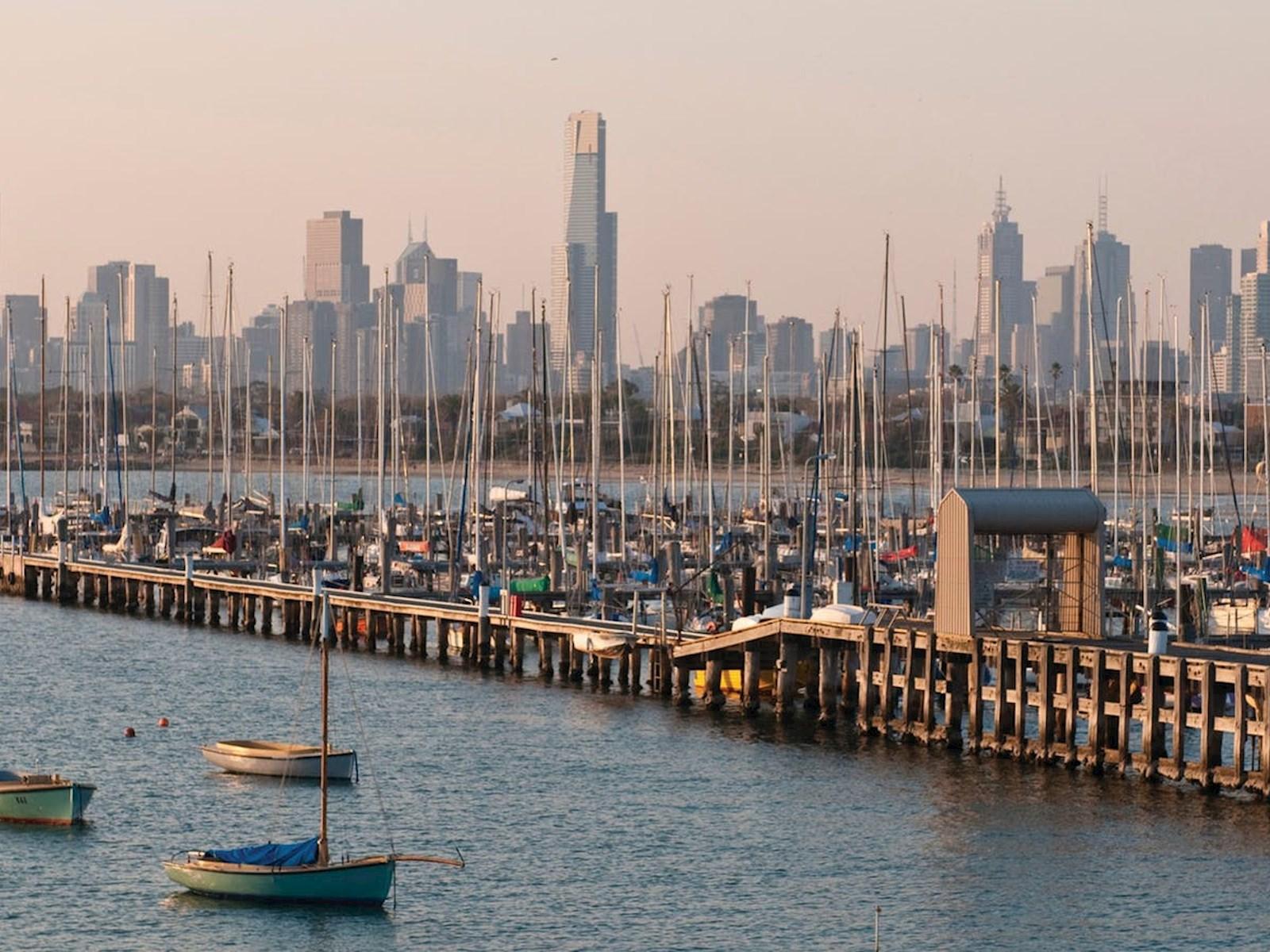
Skill gaps in Victoria are addressed through local training and recruitment. In certain instances, industries may require migration to quickly supplement the number of skilled professionals available. Therefore, the Victorian Government has introduced the Workforce Skills Pathways for those people working in certain occupations to apply for Victorian nomination.
You do not need to work in the target sector nor have STEMM skills to apply under the Workforce Skills Pathways.
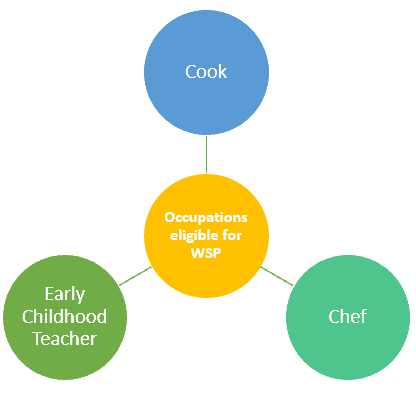
To assist industry address labour shortages caused by the coronavirus pandemic, the Victorian Government has established the Hospitality pathway for highly skilled cooks and chefs.
You must be eligible under either the subclass 190 or subclass 491 Victorian visa nomination criteria and be living and working in Victoria as a cook or chef.
The Victorian Government is investing almost $5 billion over the decade to deliver Three-Year-Old Kindergarten. This investment will create an additional 6,000 teaching jobs across Victoria.
You must be eligible under either the subclass 190 or subclass 491 Victorian visa nomination criteria, and be living and working in Victoria as an Early Childhood Educator. You must also have a relevant skills assessment as an Early Childhood (Pre-primary School) Teacher from the Australian Institute for Teaching and School Leadership.
To apply for 190 nomination under the Workforce Skills Pathway, you need to meet the requirement set out by the Victorian Government.
To be eligible to apply for Victorian Skilled Nominated (subclass 190) visa nomination, you must:
To be eligible to apply for Skilled Work Regional (Provisional) visa (subclass 491) visa nomination, you must:
You can only apply under this pathway if you are working in the occupations listed above.
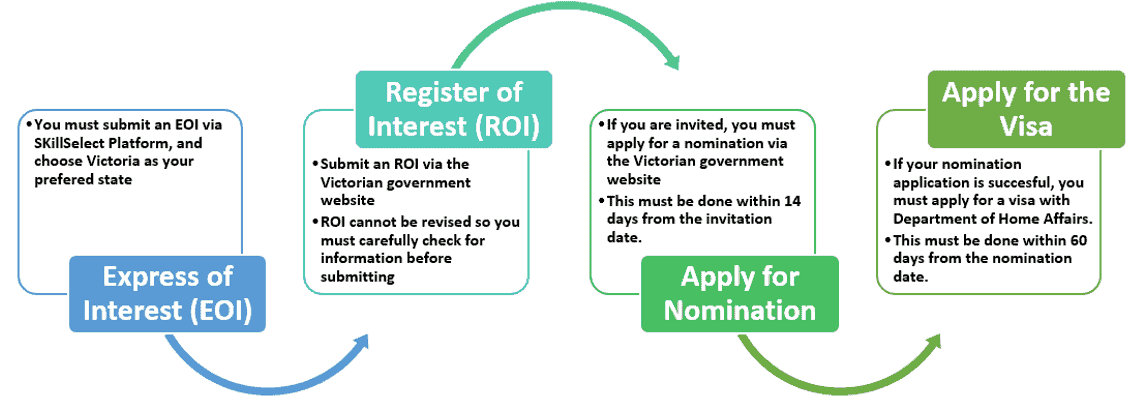
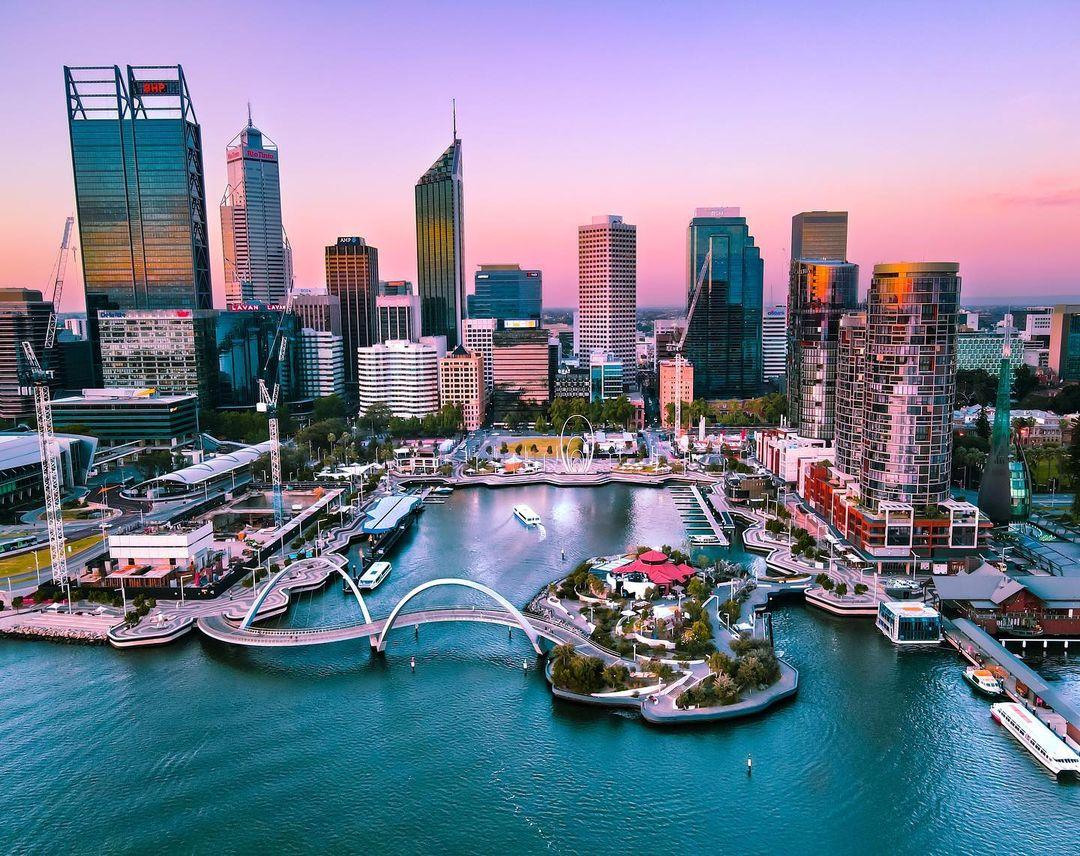
The following occupation has been added to the Western Australian Skilled Migration Occupation List schedule 2.
Applicants who have a nominated occupation identified on the Western Australian skilled migration occupation list (WASMOL) or Graduate occupation list (GOL) may be eligible for Western Australian State nomination using one of the following visa subclasses:
Skilled Nominated visa (subclass 190); or
Skilled Work Regional (Provisional) visa (subclass 491).
The WASMOL is available to applicants who intend to use the general stream WASMOL schedule 1 or the general stream WASMOL schedule 2.
The GOL is available for applicants who intend to use the graduate stream.
To determine your eligibility to apply, consult the Criteria for State nomination.
Occupations may have the following status.
Available: occupation is available for nominations invitations.
Candidates nominating for occupations that are designated ‘Regional Western Australia only’ in the General or Graduate stream must provide evidence of a job offer/contract of employment in a location defined by the Commonwealth as Category 3 – Regional Centres and Other Regional Areas (not Perth and Mandurah). These include the following areas by postcodes: 6041 to 6044, 6084, 6207, 6213, 6215 to 6537, and 6560 to 6770.

There has been no additional changes during the month of September to the Priority Migration Skilled Occupation List (PMSOL). Strengthened labour market testing will continue to allow numbers of sponsored skilled workers to migrate to Australia to fill urgent skills needs in critical sectors, helping to create Australian jobs and rebuild Australia’s economy.
As of 17th September 2021, 44 occupations remain on the PMSOL including (ANZSCO codes):
Similar to the month of August, employer-sponsored applicants in the PMSOL occupations will be given priority processing for both nomination and visa applications in the following visa types:
Applicants and existing employer-sponsored visa holders on the PMSOL can still request a travel exemption to enter Australia during the current border closures. However, the mandatory 14-day quarantine period still applies and will still be at the traveller or sponsor’s expense.
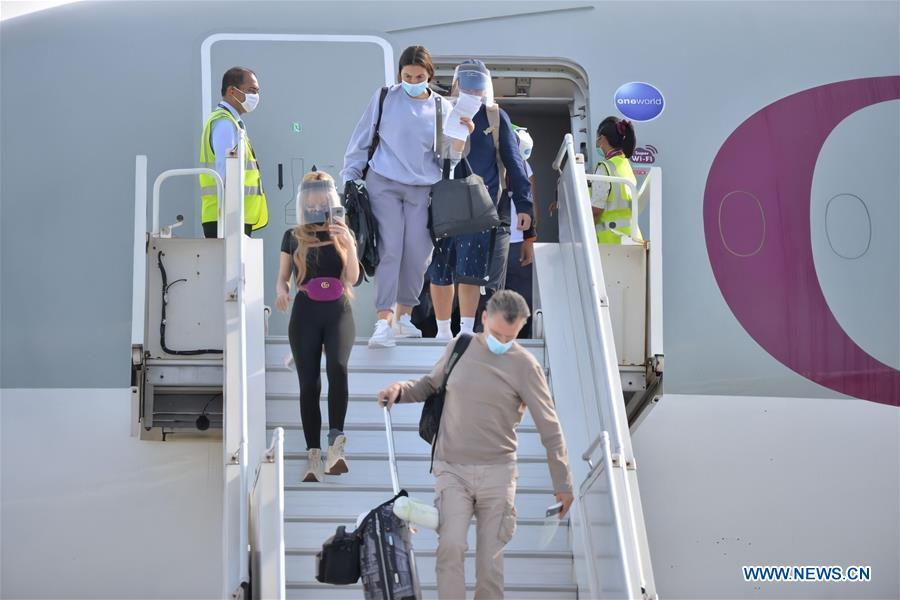
The Australian Bureau of Statistics (ABS) has released Overseas Arrivals and Departures data for June 2021, which confirmed that net migration into Australia has moved further back into positive.
There were a net 2,540 permanent & long-term arrivals in June, which followed May’s 3,480 net arrivals:
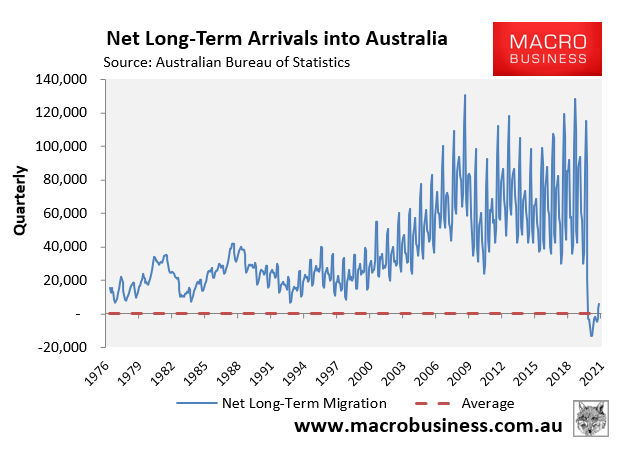
Over the June quarter, there were 6,290 net permanent & long-term arrivals.
Nevertheless, there have been 17,270 net permanent & long-term departures since the beginning of the pandemic in March 2020, representing the first time that net arrivals have been negative since the series commenced in 1976:
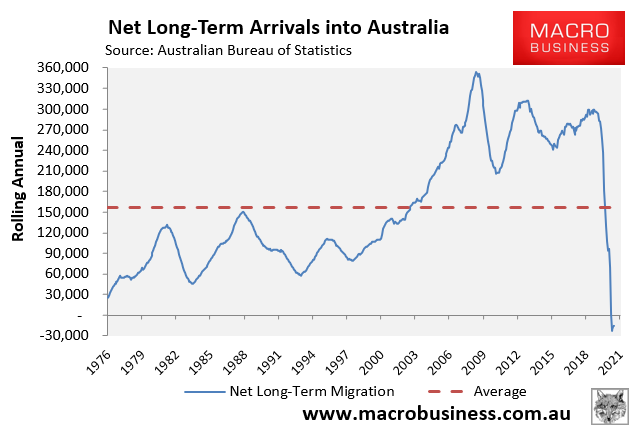
The monthly net permanent & long-term arrivals data is strongly correlated with the official net overseas migration (NOM) data published later by the ABS, which is only current to December 2020. The next chart plots these two series together, which suggests annual NOM will soon bottom-out:
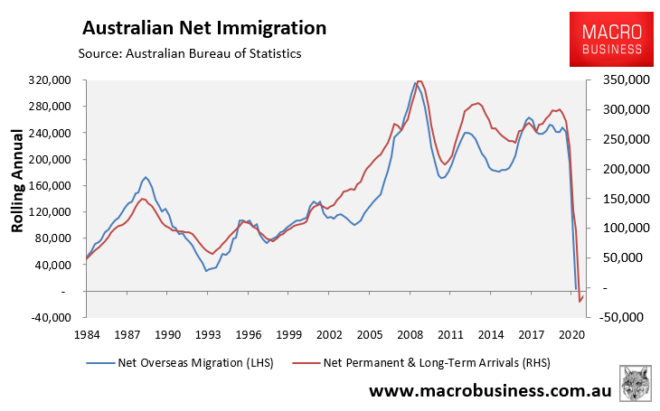
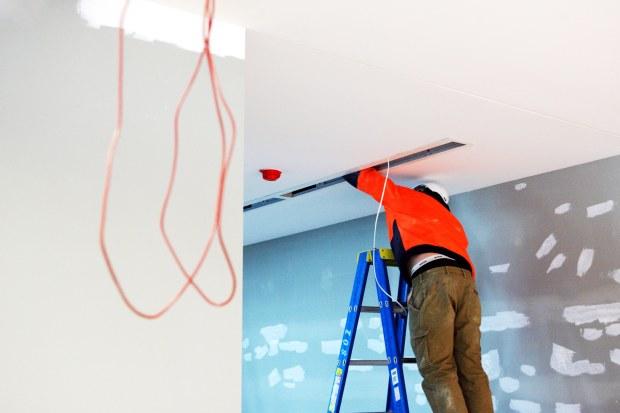
Changing patterns of economic activity since the outbreak of COVID-19 have resulted in regional areas, for the first time, having far higher and more persistent levels of skills shortages than cities, with trades and technical skills in particularly short supply.
Analysis of 800 occupations by the National Skills Commission reveals that one in five occupations in Australia is suffering from skill shortages.
“Employers in regional areas are generally confronting great challenges in recruiting employees.”
Mr Boyton said the shift in skill shortages to the regions was most likely being driven by changes in spending patterns since the beginning of the pandemic in 2020.
“If you think about vacations, going overseas is impossible. That has shifted the thinking of a lot of Australians to travelling to regional areas,” said Mr Boyton, who will appear on a panel at The Australian Financial Review Higher Education Summit on Monday.
The National Skills Commission has created a skills priority list that provides a labour market rating of current and future levels of demand nationally. It found all states were experiencing high skills shortages in the regions, particularly in Western Australia and Queensland.
The gaps are strongest in the trades, with electricians, carpenters, chefs and fitters in short supply. Other difficult-to-fill jobs include machinery operators, drivers, managers and community and personal service workers.
The National Skills Commission assessed 265 occupations to be in high future demand. Among the most in-demand occupations would be IT, aged care and disability workers, and labourers.
Simon Walker, managing director of the National Centre for Vocational Education Research, said the regions would also be suffering from the lack of backpackers and international students who picked up jobs in the “hidden part of the economy” such as fruit picking, cleaning, hospitality and the care sector.
At the other end of the spectrum, Mr Walker said regional areas suffered from a lack of highly skilled individuals.
“At any one time, there’s going to be pressures in regions in specialised jobs because they just don’t have the pool of workers. And in some industries, such as mining, demand for skills can fluctuate a lot. There can be severe skill shortages [that] appear quite rapidly,” Mr Walker said.
Mr Norton said the inter-relationship between skilled migration, international students and permanent residency was complicated. He noted that while international students made up the majority of accounting graduates in Australia, there were still skill shortages.
Mr Norton also said it was not clear how recent changes to student contributions and government teaching subsidies would affect skill shortages.
The federal government’s Jobs Ready Graduates legislation introduced last year, was ostensibly to steer students into areas with sound employment prospects by lowering their contributions in these areas and dramatically raising them in others, such as the humanities, law and economics. With fees in these areas at $14,500 a year, the idea is to encourage students to pick subjects in science, teaching and health, where the contributions are much lower.
While application and enrolment data is not yet available for 2021, Mr Norton said demand for universities places was usually responsive to labour market trends and did not need policy interventions.
With overall funding per-student place less than under the previous model, universities had no incentive to increase supply in the areas the government had deemed to be in national demand.

An industry brought to its knees by Covid-19 lockdowns calls on Australians to help bring back live performance in a national advertising campaign.
Dozens of the biggest names in the Australian music industry have joined forces for a pro-vaccination advertising campaign launched on Monday 6th September 2021.
Tim Minchin, Jimmy Barnes, Amy Shark, Paul Kelly and the Hilltop Hoods are just some of the more than 200 acts who have joined forces with major Australian record labels, ticketing agencies, tour promoters and festival organisers for the #Vaxthenation campaign.
Calling on Australians to get vaccinated against Covid-19 to “stop the interruptions” and end the cycle of lockdowns, the campaign will roll out advertisements on national television and through social media.
#Vaxthenation is the initiative of the newly formed LIVE (Live Industry Venues + Entertainment) alliance, representing an industry that has been one of the hardest hit by lockdowns and border closures in the past 18 months.
The alliance said 79,000 jobs in the live performance industry had disappeared by the end of 2020, and $23.6bn of economic output lost.
On Saturday, the chief executive of Live Performance Australia, Evelyn Richardson, warned that major live shows would be unable to return until 85% capacity was permitted by state governments.
“While there may be some smaller productions that could operate at less than that, they would be very small in number,” she told Nine media.
“Any commercial event, be it musical, theatre, concert or festival, can’t operate financially at less than 85%.”
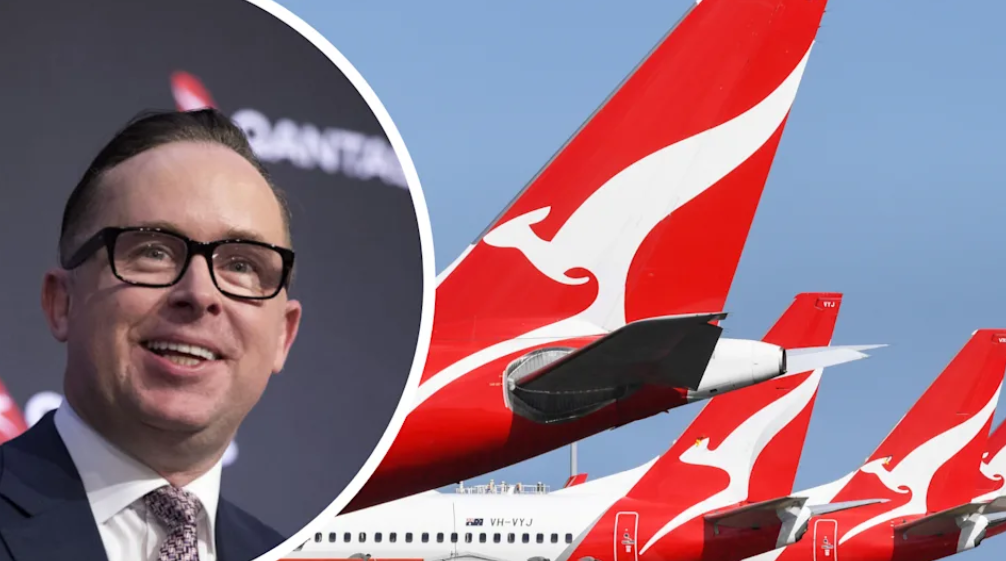
Qantas has confirmed the exact dates when it expects Australians will be able to travel to popular destinations in the US, UK, Asia and more.
The airline has scheduled flights to London, Los Angeles, Vancouver, and Singapore that will commence from 18 December, a spokesperson said.
Meanwhile, Aussies will be able to travel to Tokyo and Fiji on the Flying Kangaroo from 19 December.
To date, this is Qantas’ most concrete confirmation of overseas travel dates after Qantas chief Alan Joyce revealed late last month he expects flights to certain cities would resume from “mid-December”.
Qantas has scheduled flights for the following travel routes:
The confirmation comes hot on the heels of Air Canada’s announcement that it will resume the Sydney-Vancouver route from 17 December as the aviation and travel industries grows increasingly more confident about the possibility of the travel ban being lifted.
Meanwhile, Flight Centre boss Graham Turner has been even more optimistic, with expectations that Australians will be able to travel to the UK from “as early as November”.
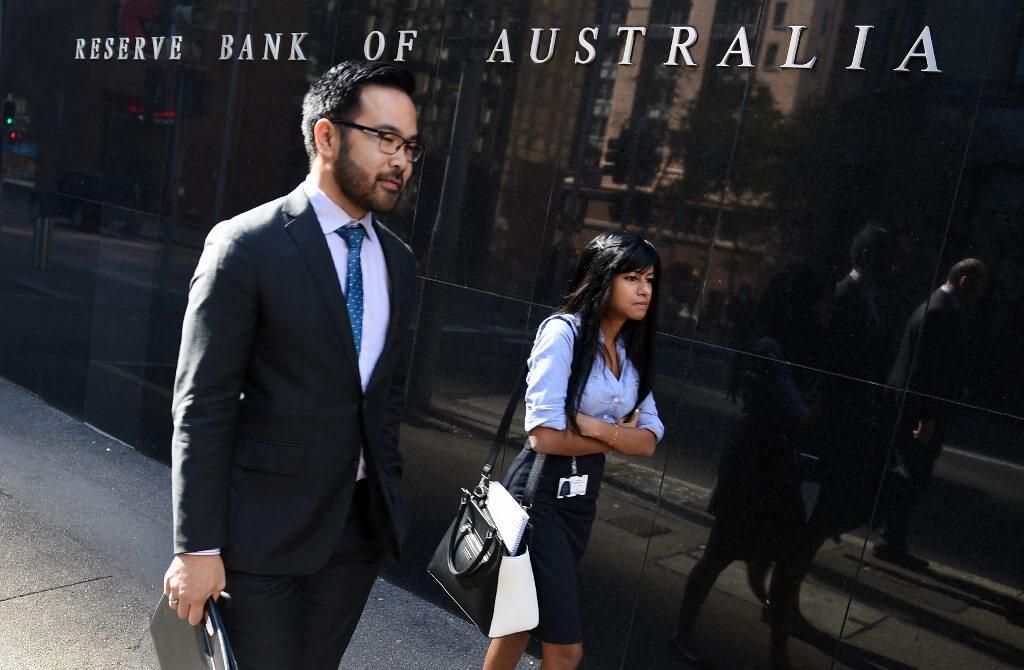
The Australian Trade and Investment Commission (Austrade) has launched the first of its suite of micro-credentials to support employability opportunities for international students. The Work Readiness Micro-credential programme is available for free to international students in Australia. This includes Australian international students who are onshore and offshore; graduates, current and prospective students, said its website.
It provides students with the tools and resources to navigate the job market in both Australia and worldwide successfully. The Work Readiness Micro-credential was developed in partnership with Successful Graduate, an employability training solutions provider to students, graduates, education providers and employers.
Students and graduates who complete the course will receive a digital certificate of completion that can be shared with professional networks and potential employers via platforms such as LinkedIn. Austrade is the Australian Government’s international trade promotion and investment attraction agency. This initiative is part of Austrade’s ongoing Digital Education Hub programme.
According to Austrade, course content features include:
An introduction on how to apply for internships and part-time work
Bespoke resources on entrepreneurship, personality tests and managing work relationships
Tailored videos and training resources on preparing for graduate job searches
Employability tools including application templates, interview tips, negotiation tips and support for handling the first day in a new job
International students in Australia can enhance their employability from the comfort of their own home as the course is primarily a video-based training programme. Students can take the training at their own pace from any device. Each unit provides an introduction to the concepts and processes that will improve students’ employability as they embark on their Australian study experience.
The development of the micro-credential, together with a new suite of digital services and resources, has been designed to support ongoing engagement with Australia’s global student community. It was also designed to add complementary value to an Australian qualification, enhance the student experience, and support improved work-while-you-study and graduate outcomes, it said.
New digital resources are also in the offing to provide access to prospective students and showcase Australia’s strengths in employability. Click here to register for the work readiness course.
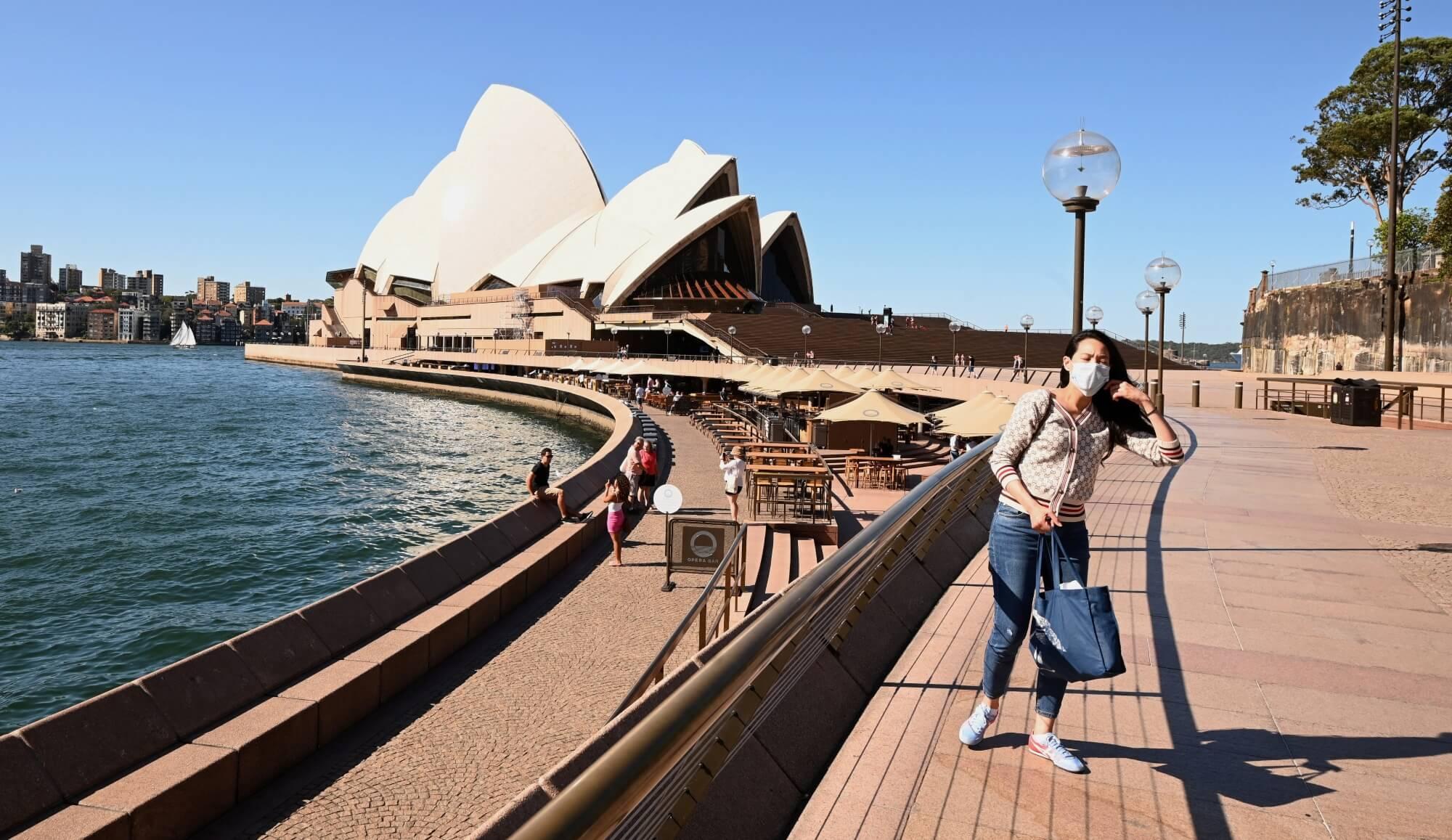
Australian Prime Minister Scott Morrison previously hinted that Australia’s international borders aren’t expected to reopen until 80% of adults are fully vaccinated, anticipated to be in December 2021. So, what does the future hold for aspiring international students in Australia? Here’s what we know so far:
Australia is currently dealing with the highly transmissible Delta variant that has resulted in weeks-long lockdowns. Morrison said in August that the country must start to learn to live with COVID-19 when Australian vaccination rates reach their targets, reported Reuters.
As part of Australia’s four-stage plan out of the pandemic, a target for 80% of adults needs to be fully vaccinated before the gradual reopening of Australia’s international borders. The country, however, is not expected to reach the 80% fully vaccinated rate until December. When vaccination coverage reaches 80%, only “highly targeted lockdowns” would be necessary and inoculated Australians would be free to travel interstate.
Limited travel through travel bubbles with low-risk destinations could be on the cards, but this would also depend on the country’s vaccination rates.
Will Australia’s international borders reopen as one? Some states have hinted that they would like to reopen international borders sooner than others. Last week, news.com.au reported that New South Wales Premier Gladys Berejiklian reportedly told the media that she will ease restrictions and attempt to resume international travel when vaccination targets are met, regardless of what the other states do. “I don’t want eight million people in NSW to suffer because some people don’t go forward with what they signed up to,” she said on Sunrise.
Sky News reported today that Berejiklian said 750,000 people came forward for a COVID-19 jab over the last week. “We are inching ever so much closer to that 70% double-dose figure which is so encouraging,” she was quoted saying. Berejiklian said a vaccination coverage of 70% double-dose will be NSW’s ticket out of lockdown amid an unrelenting outbreak of the Delta strain. In a separate report, ABC News said NSW 70% milestone is expected to be reached at the end of October.
Victoria Premier Daniel Andrews said Victoria will begin to ease restrictions once 70% of eligible Victorians have received at least one dose of a COVID vaccine. In the meantime, the lockdown will continue and the border with NSW remains closed. “We’ve got to buy time to allow vaccinations to be undertaken all the while doing this …. very painful difficult work, to keep a lid as much as we can on cases,” he was quoted saying by ABC News.
Some state leaders are reluctant to follow the national plan, including Western Australia’s Mark McGowan, who has expressed reluctance about opening the state even when the PM’s targets are met. When Morrison was asked whether or not he could foresee a situation where a state such as NSW was allowed to start international travel again if other states were still reluctant to open their international borders, he reportedly answered yes — the national plan allows for it.

Australian Wallabies have secured the (Rugby Union) Mandela Plate with a 30-17 victory over South Africa! Brisbane, Queensland. September 2021

Panthers defeat Eeels in NRL semi-final thriller. Sydney NSW. September 2021

Australian Daniel Ricciardo wins Italian Grand Prix, September 2021
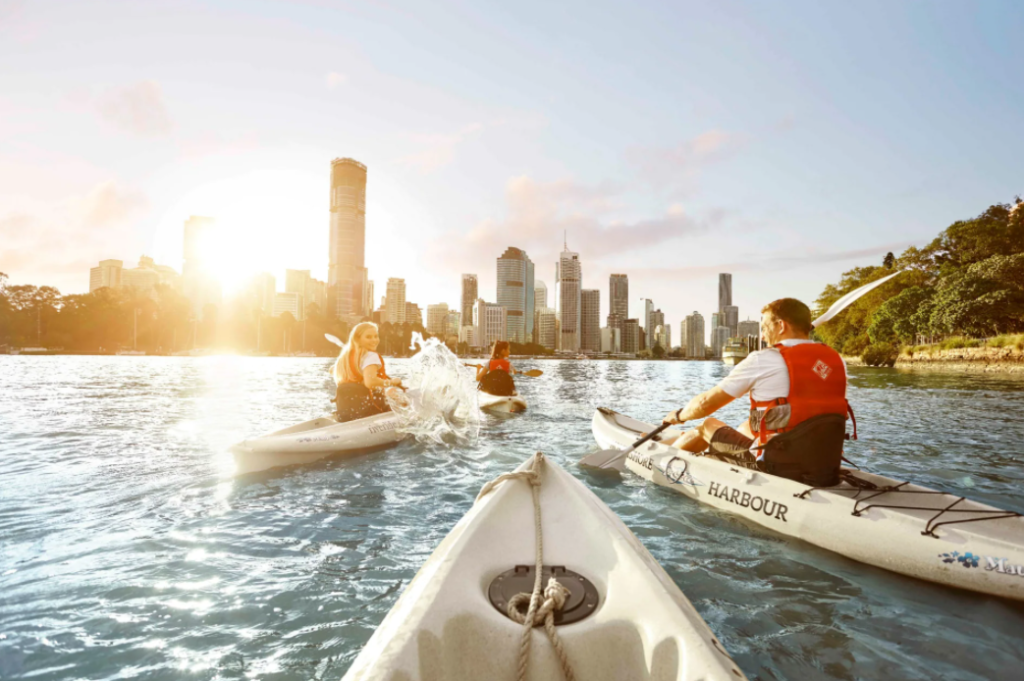
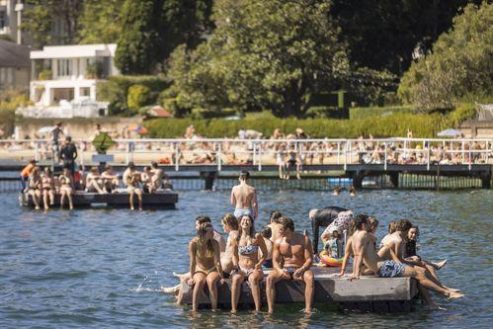
Redleaf beach in Sydney was closed as it reached Covid-19 capacity. Sydney, NSW. September 2021
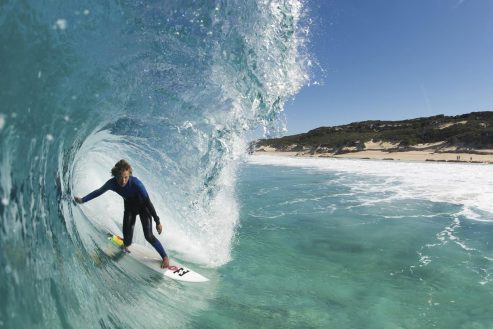
COVID-19 having no effect on the surf. Western Australia. September 2021

Motorists going for a beach drive. Western Australia. September 2021
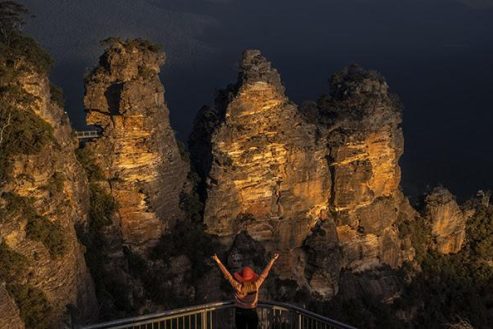
Hands in the air!! A girl is excited to see The Three Sisters at dusk. Blue Mountains, NSW. September 2021
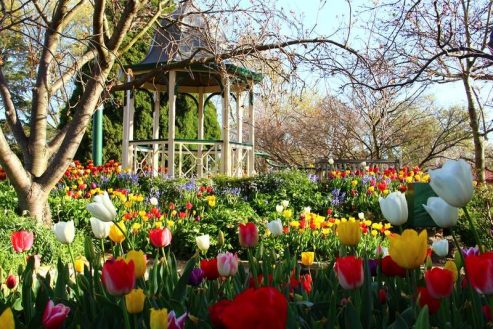
Tulips blossoming at the TULIP TIME FESTIVAL, Bowral, NSW. September 2021
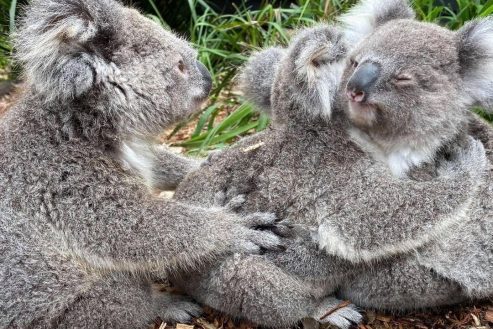
Time for a hug. Koala’s at The Australian Reptile Park, Central Coast, NSW. September 2021

Boxing match at sunset. Cape Hillsborough, Queensland. September 2021
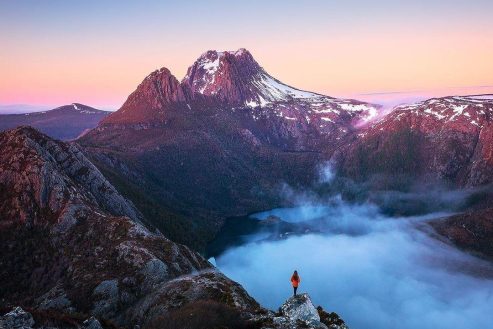
Hiker takes in the view at Cradle Mountain, Tasmania. September 2021
As legislation and travel requirements are constantly changing, we strongly recommend obtaining advice on your individual situation from a Registered Migration Agent. Please click here to book a consultation with one of our Registered Australian Migration Agents, located in Australia.






You can manage your membership and billing method by clicking here
Terms of Service
Privacy Policy
Copyright © 2025 Office of Immigration Australia, a private company registered in Australia. All Rights Reserved.